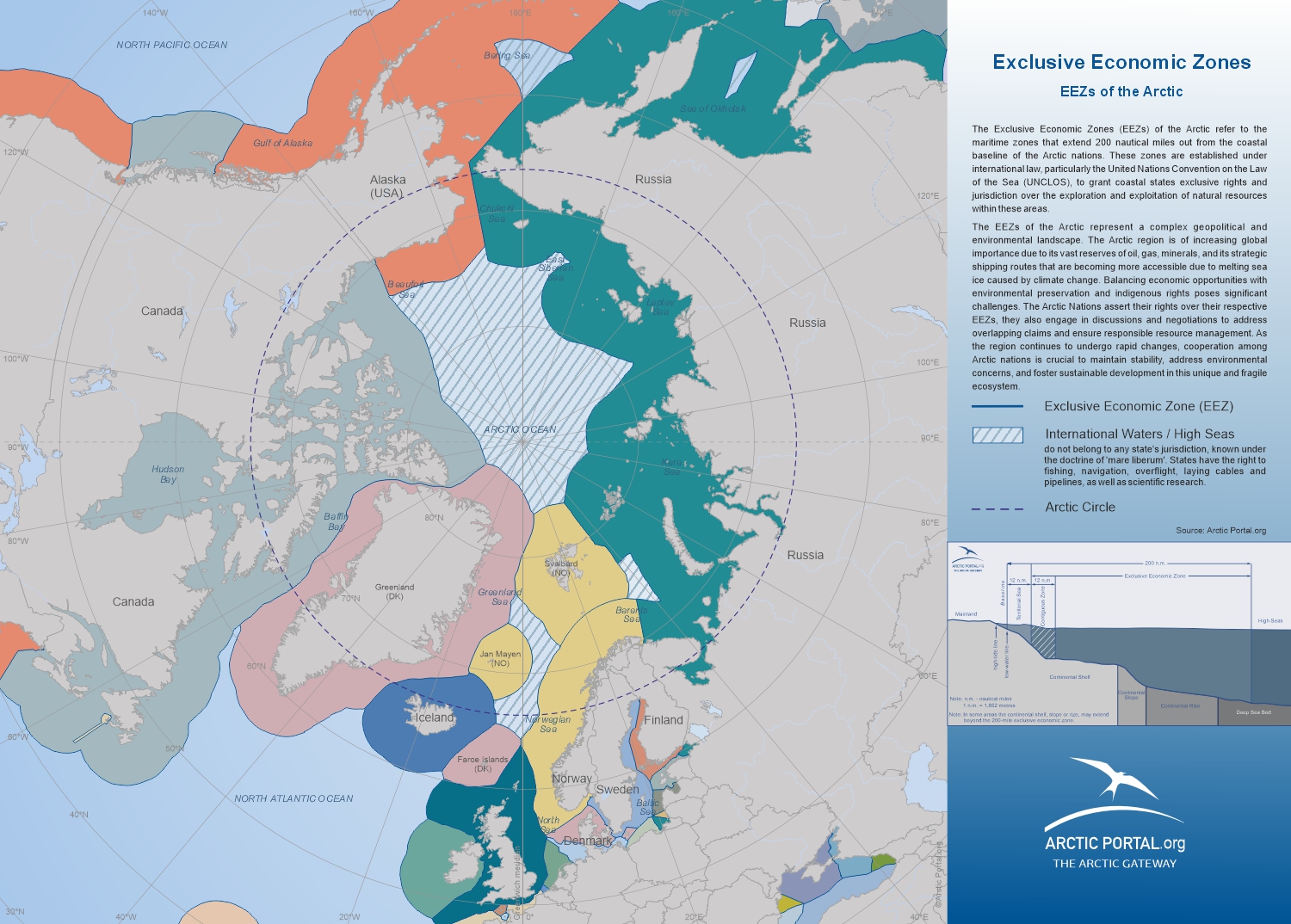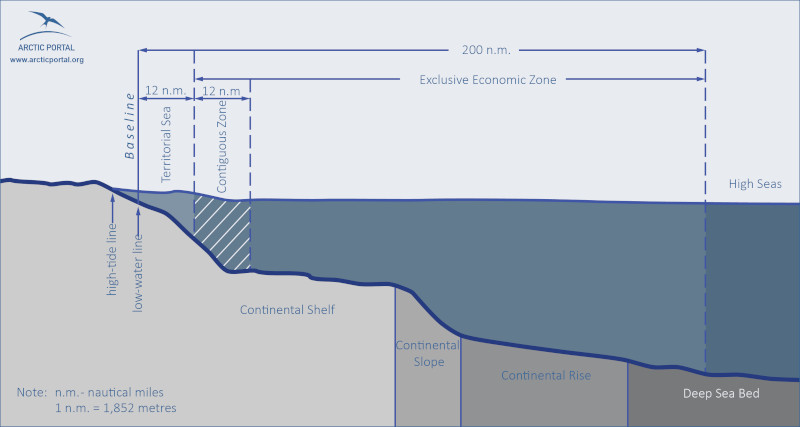An exclusive economic zone, EEZ, is an area beyond and adjacent to the territorial sea, extending up to 200 nautical miles from the baseline, under which the rights and jurisdiction of the coastal State and the rights and freedoms of other States are governed by the relevant provisions contained under chapter V of the UNCLOS (art. 55-75).
The introduction of the concept of the 200n.m. EEZ, which encompass large areas formally falling under the "high-sea" jurisdiction, has represented a major change with the enter into force of the UNCLOS
Technical and Legal Aspects of the EEZs
 Delimitation of the EEZ
Delimitation of the EEZ
The inner limit of the EEZ is the outer limit of the territorial sea (12n.m. measured from the baseline).
The outer limit of the EEZ shall not extend beyond 200 nautical miles from the baselines from which the breadth of the territorial sea is measured (see drawing). It must be beared in mind that the territorial sea is not part of the EEZ. Therefore, the total length of EEZ (strictly speaking, so that portion of the sea between the outer limit of the territorial sea and the 200 n.m measured from the baseline) is 188 n.m. (in case of twelve meters territorial sea) or 197 n.m. (in case of three-meters territorial sea).
The figure of 200 n.m. was chosen for political and historical reasons, no other significances (as biological, geographical or other) apply.
Delimitation of the exclusive economic zone between States with opposite or adjacent coasts
In many regions States are unable to claim a full 200n.m. zone because of the presence of neighboring States. In such cases, delimitation of adjacent EEZ shall be effected by agreement on the basis of international law, in order to achieve an equitable solution.
The Legal Status of the EEZ
Articles 55 and 86 UNCLOS regard EEZs as a separate functional zone of a sui generis character, situated between the territorial sea and the high seas.
The rights and duties of the coastal State in the EEZ
Rights and duties of Coastal States in their EEZs are regulated by UNCLOS, and specifically by art.56. Coastal States are entitled to rights (exploring and exploiting natural resources, whether living or non-living, in the water, seabed and its subsoil), but also have specific duties (conserving and managing).
In the exclusive economic zone, the coastal State has:
(a) sovereign rights for the purpose of exploring and exploiting, conserving and managing the natural resources, whether living or non-living, of the waters superjacent to the seabed and of the seabed and its subsoil, and with regard to other activities for the economic exploitation and exploration of the zone, such as the production of energy from the water, currents and winds;
(b) jurisdiction as provided for in the relevant provisions of this Convention with regard to:
- the establishment and use of artificial islands, installations and structures;
- marine scientific research;
- the protection and preservation of the marine environment;
(c) other rights and duties provided for in this Convention.
2. In exercising its rights and performing its duties under this Convention in the exclusive economic zone, the coastal State shall have due regard to the rights and duties of other States and shall act in a manner compatible with the provisions of this Convention.
3. The rights set out in this article with respect to the seabed and subsoil shall be exercised in accordance with Part VI.
The rights and duties of other States in the EEZ
Navigation: Article 58 provides that in the EEZ all States enjoy the freedoms referred to in article 87 of navigation. Freedom of navigation in the EEZ is subject to the provision of articles 88 to 115.
Over flight: All States enjoy freedom of over flight in the EEZ (art. 58).
Laying of submarine cables and pipelines: All States enjoy the freedom of laying submarine cables and pipelines in the EEZ and other internationally lawful uses of the sea related to this freedom compatible with the other provision of the Convention. See articles 112 to 115, they deal with the question of broken or damaged cables and pipelines.
Relationship between the rights of the coastal State and the rights of other States
Article 60 is designed to avoid conflicts between the right of the coastal State to construct artificial islands or installations and the rights of foreign shipping. Part XII is similar in order to minimize interference with foreign shipping. In some other cases, the Convention contains no specific rules to avoid conflicts.








